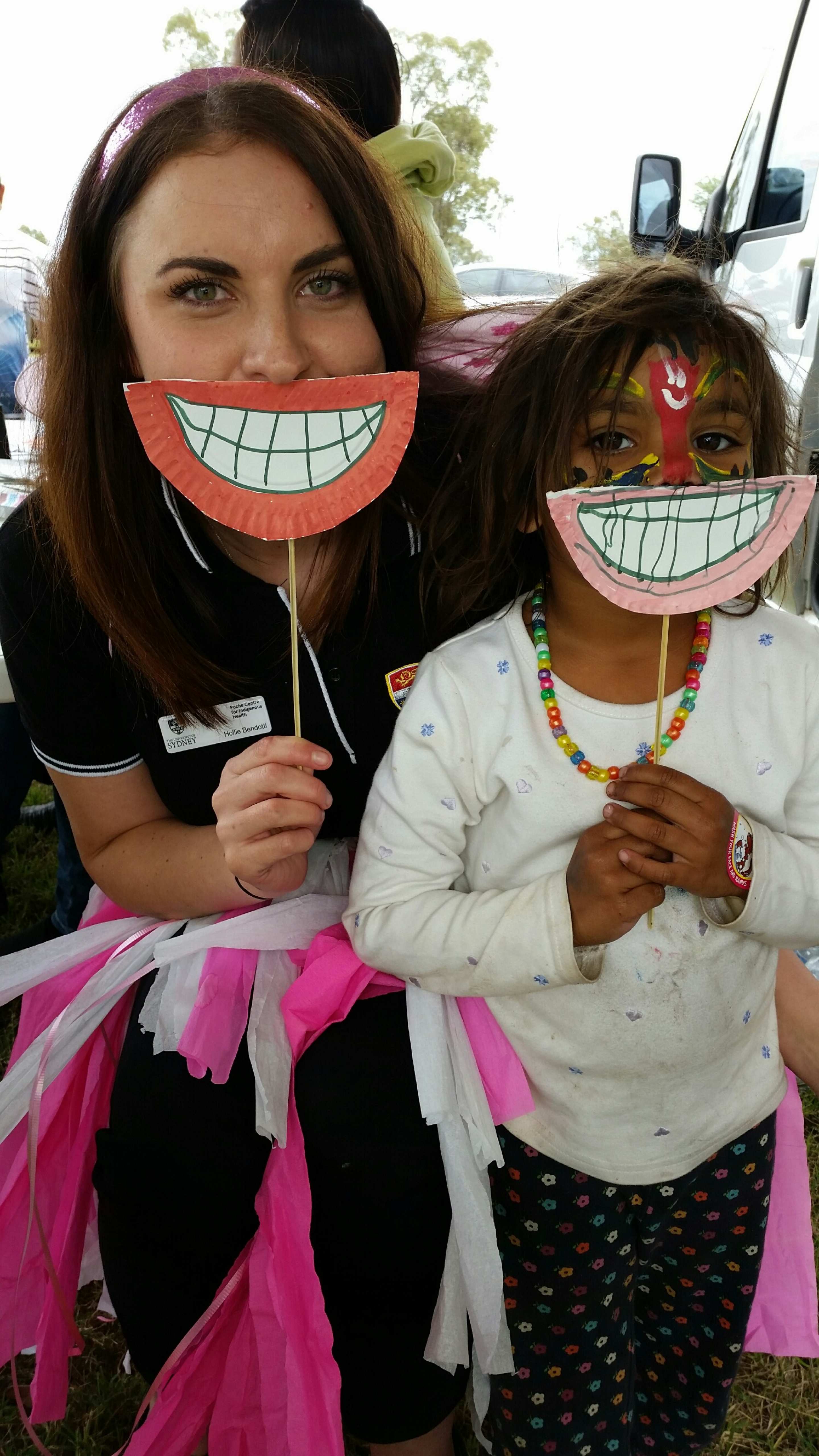Poche oral health initiative shortlisted for higher education prize
Mobile service improves oral health and provides scholarships and career pathways for hundreds of Aboriginal people.

The Poche Centre for Indigenous Health’s mobile oral health service is a finalist in the Community Engagement category of the inaugural Australian Financial Review Higher Education Awards.
This initiative – built with the help of the Faculty of Dentistry - has helped build oral health facilities servicing nine remote NSW communities including Boggabilla, Toomelah and Mungindi.
It has created unique mobile dental and laboratory facilities able to provide the best dentistry available anywhere in the state.
Among its services is a van which travels from town to town which can fit and supply up to 12 sets of dentures in four days, providing functional teeth, dignity and helping those who have waited upwards of six-years for public dentures.
The service began two years ago and this year alone has delivered more than 10,000 in rural and remote areas.
"It also provides scholarships and career pathways for Aboriginal people to deliver oral health services.”
“Our partnerships, commercial model, and technology have combined to build this fantastic service,” says Poche Centre Director Kylie Gwynne.
“Not only is it improving the oral health of hundreds of Aboriginal people who would otherwise wait years for much needed treatment, it also provides scholarships and career pathways for Aboriginal people to deliver oral health services.”
“Engaging students in the program means they gain a unique rural and remote oral health experience which informs their practice and builds their cultural competence.”
Half of the ‘Healthy Teeth Strategy’ staff are Aboriginal and the initiative has assisted 14 Aboriginal people to qualify as dental assistants, all of whom are employed. Two graduates are now undertaking a Diploma in Dental Technology, one is preparing for entry to the Bachelor of Oral Health and another 20 have commenced the Certificate III or IV in Dental Assisting.
The awards will be announced on 27 October.
Related articles
Keep an eye on vocal fry
Dr Cate Madill explores the speech phenomenon becoming increasingly common with young women in Australia, the UK and US.

Animal welfare pioneers launch groundbreaking teaching portal
Experts from across the nation and overseas are launching Australia's first-ever national tertiary animal welfare and ethics project. The United Kingdom's Emeritus Professor John Webster, a pioneer of animal welfare science, was part of the collaboration to develop the One Welfare portal - an online, interactive resource, which has brought together all the veterinary faculties in Australia and New Zealand.
Partnership a win for students and Aboriginal families
Health students from the University of Sydney are spending their December break working with Aboriginal and Torres Strait Islander families and getting hands-on with cross-cultural understanding.
If lawful firearm owners cause most gun deaths, what can we do?
By accepting the common mantra that law-abiding, licensed firearm owners are not the problem, many have chased popular fears such as mental illness and violent video games.
Poche Patron calls for increased funding for Aboriginal and Torres Strait Islander research projects
Professor Tom Calma AO appealed to the ARC to match the NHMRC's level of funding for Indigenous and Torres Strait Islander projects at a University of Sydney health research showcase last week.
Six expert predictions for China in 2016
Experts from the University of Sydney share their predictions for China in 2016. Their areas of expertise range from China’s economy to its judicial and political system to the public health challenges the country faces.
How first born children are given an advantage
Studies show kids born earlier in the family enjoy better wages and education, Dr Marian Vidal-Fernandez and Dr Ana Nuevo-Chiquero explain why.
5G cellular network not far away
A 5G cellular network that supports the trillions of interconnected devices predicted to be in use in the coming few years is being designed by telecommunications specialists at the University of Sydney.
How to get liked and shared on Facebook: new research
A new study of the Facebook pages of 20 Australian public health agencies reveals that videos, celebrities, sports stars, emotional appeals and factual information generate greatest user-engagement, while techniques such as sponsorships and authority figures reduce user engagement.
Smart phone device to save lives
A lifesaving smartphone device that can cheaply and quickly detect stroke-causing heart rhythm abnormalities is being piloted for the first time in Aboriginal and Torres Strait Islander communities across Australia.